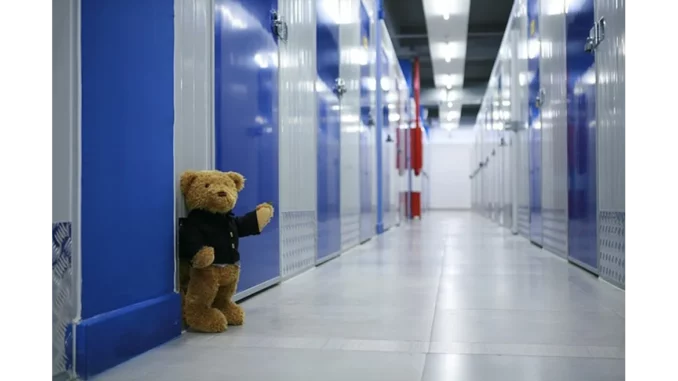
Summary
Global Self-Storage Market Set to Surge to $89.9 Billion by 2031
The global self-storage market, valued at approximately $58.3 billion in 2022, is projected to expand at a compound annual growth rate (CAGR) of 7.5%, reaching $89.9 billion by 2031. This growth is catalysed by increasing urbanisation and a rising demand for flexible storage solutions among both personal and business users. Industry leaders, such as Public Storage and CubeSmart, are leveraging technological innovations to strengthen their competitive position, while navigating operational and regulatory challenges.
Main Article
Urbanisation and Market Demand
The self-storage industry is experiencing robust growth, driven by demographic shifts and evolving consumer preferences. As urbanisation accelerates, living spaces in cities are becoming increasingly compact, prompting a surge in demand for additional storage solutions. This trend is not only prevalent among individuals needing space for personal belongings and recreational items but also among businesses, particularly small and medium-sized enterprises (SMEs), seeking flexible storage options for inventory management.
“Urban living is reshaping our storage needs,” stated Richard Thompson, CEO of Storage Solutions Ltd. “People are looking for convenient and secure places to store their belongings without the burden of long-term commitments.”
Technological Advancements
A significant contributor to the market’s growth is the adoption of cutting-edge technologies that enhance both operational efficiencies and customer experiences. The integration of digital platforms for online bookings and management has simplified access to storage solutions, making them more appealing to tech-savvy consumers. Additionally, advanced security measures, such as biometric access and comprehensive surveillance systems, have become standard, ensuring heightened protection of stored items.
The introduction of smart storage solutions, including climate-controlled and automated units, has further broadened the industry’s appeal. These innovations cater to specific needs, such as the preservation of sensitive items and the provision of round-the-clock access, attracting a wider customer base.
Competitive Landscape
The self-storage market is dominated by major players like Public Storage, Extra Space Storage, CubeSmart, and Life Storage, which have established extensive facility networks and diverse service offerings. These companies pursue strategic partnerships, mergers, and acquisitions to bolster their market presence and competitive advantage.
In parallel, regional players compete vigorously by offering competitive pricing and localised services to attract customers. The competitive landscape is further intensified by new entrants and the geographic expansion of existing firms into emerging markets.
Industry Challenges
Despite its promising growth trajectory, the self-storage sector faces numerous challenges. High operational costs, particularly related to land acquisition, construction, and maintenance, present formidable barriers to entry for new market participants. For established operators, these costs can limit expansion opportunities and strain financial resources.
Economic fluctuations and shifts in consumer spending also pose risks, potentially impacting occupancy rates and financial stability. Moreover, regulatory hurdles, including zoning laws and property taxes, complicate the establishment and expansion of storage facilities, adding layers of complexity and cost.
Detailed Analysis
The self-storage market’s growth is emblematic of broader economic and societal trends. As urbanisation progresses, cities face the dual challenges of accommodating growing populations and maintaining quality of life. This dynamic underscores the importance of adaptable solutions like self-storage, which offer flexibility amid spatial constraints.
Technological advancements within the industry reflect a wider trend towards digital transformation across sectors. By enhancing customer experiences and operational efficiencies, self-storage providers are not only meeting current demands but also setting the stage for future innovations. The emphasis on smart storage solutions aligns with increasing consumer expectations for convenience and customisation.
However, the industry’s expansion and the entry of new competitors necessitate strategic agility. Operators must continue to innovate and adapt, balancing cost structures with the need for enhanced service offerings. The ability to navigate regulatory landscapes will be critical in maintaining growth momentum.
Further Development
Looking ahead, the self-storage market is poised for continued expansion, fuelled by shifts in consumer behaviours and the rise of e-commerce. The growing trend towards minimalism and downsizing further underscores the demand for flexible storage solutions, as individuals and businesses seek cost-effective alternatives.
Industry stakeholders will need to stay attuned to evolving market dynamics and consumer preferences. The integration of advanced technologies will remain a key differentiator, with potential developments in automation and sustainability offering new growth avenues. As the market continues to evolve, readers can expect ongoing coverage of emerging trends and strategic insights from industry leaders.

